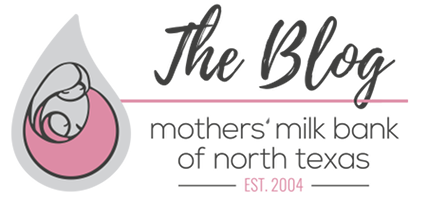 November is Prematurity Awareness Month and Tuesday, November 17, is World Prematurity Day. In the United States, 1 of every 8 babies is born prematurely. A baby born before 37 weeks is considered premature. Babies born too soon have challenging health problems that may require long-term hospitalization in a neonatal intensive care unit (NICU). Pre-term related complications result in infant death more than any other cause. Babies who survive can end up with breathing and respiratory challenges, cerebral palsy, and visual, digestive and hearing problems.
November is Prematurity Awareness Month and Tuesday, November 17, is World Prematurity Day. In the United States, 1 of every 8 babies is born prematurely. A baby born before 37 weeks is considered premature. Babies born too soon have challenging health problems that may require long-term hospitalization in a neonatal intensive care unit (NICU). Pre-term related complications result in infant death more than any other cause. Babies who survive can end up with breathing and respiratory challenges, cerebral palsy, and visual, digestive and hearing problems.
 Risk Factors
Risk Factors
The CDC lists the following risk factors for premature birth:
- Carrying more than one baby (twins, triplets, or more)
- Problems with the uterus or cervix
- Chronic health problem in the mother, such as high blood pressure, diabetes, and clotting disorders
- Certain infections during pregnancy
- Cigarette smoking, alcohol use, or illicit drug use during pregnancy
- Race - black women are about 60% more likely to have a premature baby compared to white women
 How Donor Human Milk Can Help
How Donor Human Milk Can Help
For babies born too early, breastmilk is life saving. Breastmilk provides protection through immunological properties, and premature infants who receive it, are less likely to develop serious complications like infections. Therefore, when a mother’s own milk is not available, donor human milk from a milk bank is the best alternative. Jennifer Canvasser is a mom of premature twin boys, Micah and Zachary. Zachary survived and Micah didn't. Last year, she recounted how her babies fought to live in an article published by The Huffington Post. She stresses the importance of human milk in this excerpt from Huff Post Parents, The Blog:
For fragile infants, human milk is a lifesaving intervention, just as critical as blood transfusions, vaccinations and ventilators. It is widely accepted that formula increases a fragile infant's risk of necrotizing enterocolitis -- the disease that claimed Micah's life. To best protect the health of their most fragile babies, leading NICUs have eliminated the use of formula and formula-based fortifiers prior to 34 weeks gestation. Donor milk is prescribed to babies without mother's own milk. The NICUs that use human milk as medicine are helping to keep preemies strong.
 Prematurity Prevention
Prematurity Prevention
March of Dimes launched its Prematurity Campaign in 2003 to help mothers have full-term, healthy babies. The organization continues to fund extensive research and education. As stated on their website, the efforts are paying off:
After decades of increases, the rate of premature birth in the United States has now been on a steady decline for the last several years. This decline – to 9.6 percent today – has saved thousands of babies from being born too soon. It also has saved our nation billions of dollars in excess health care costs.
However, there is still a lot of work to do to save the 15 million babies born prematurely each year worldwide. This month, we can all help spread the word, raise awareness and strive to give babies the best possible start. To learn more about Mothers' Milk Bank of North Texas and what we do, click here.
